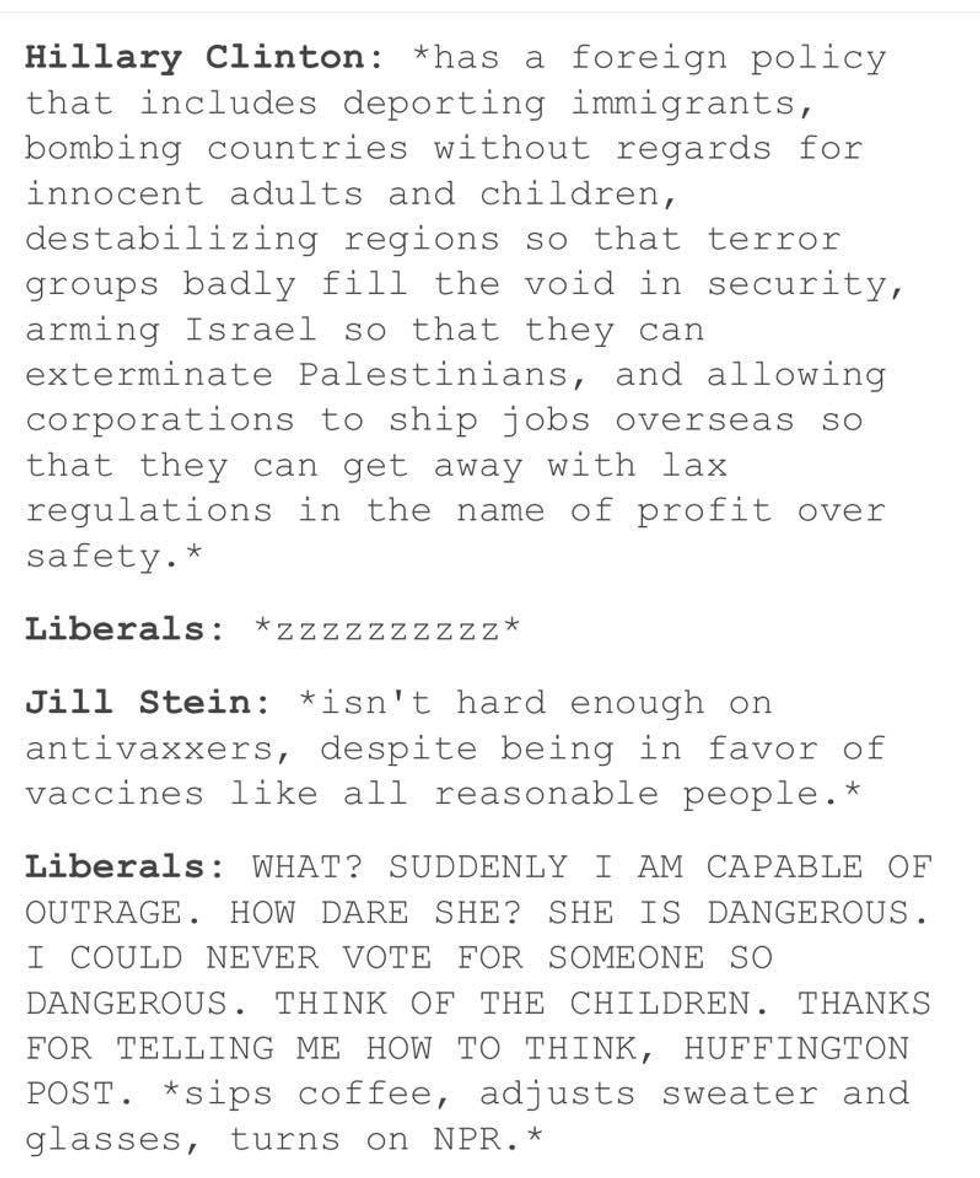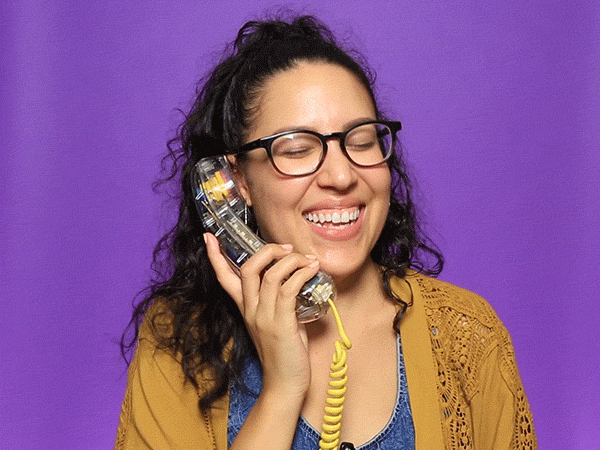Last week, the video of a Syrian child went viral.
The footage shows a small boy, younger than the Syrian Civil War itself, sitting on a pristine range seat. His eyes are listless and lost, ashen and decrepit. His hair and face are both caked with the dust of a Russian air-strike in the city of Aleppo, once a shining city and now a war-zone.
The international community was gripped by horror.
Almost immediately, many of my comrades on the American Left began to blog and preach about the problem. Well-meaning progressives and liberals shared the video of Omran attached to fire-breathing comments that condemned the American bombs and interventionism that allegedly caused the horrific tragedy. The calls for withdrawal and non-interventionist policy were renewed.
Lately, Syria has drawn more and more attention in American politics. Jill Stein, the latest electoral face of the Left, tweeted the following in response to the liberation of Manbij by American-backed rebel forces:
To Syrians who escaped #Manbij because of U.S.-led forces, I'm sorry our weapons terrorized you for two years. #PeaceOffensive #NoMoreWar
— Dr. Jill Stein (@DrJillStein) August 13, 2016
The American Left was
forged in the Sixties. Although our young generation is the engine of
the recent resurgence of progressivism, our politics are aligned with
the pacifism that began with progressive opposition to the Vietnam
War decades before most of us were born. Liberal superstars like
Bobby Kennedy distinguished themselves by opposition to military
intervention; subsequently, a generation of leftists did so as well.
The Iraq War cemented pacifism at the exact moment before the Left
returned to politics during the Occupy movement. The Bush
Administration's oil-seeking adventure reminded us of the same
lessons that Vietnam taught, and opposition to war became a
membership card in the newly rising Left. Bernie Sanders and
Elizabeth Warren, the poster-children of the movement, both attacked
Hillary Clinton during the 2016 campaign season because she made the
mistake of voting for Iraq. At best, she was a war hawk; at worst,
she was a racist intent on bombing poor, marginalized people in the
Middle-east.
Domestic progressivism has a zero-tolerance policy for hawkishness. See one post that circulated on leftist social media a few weeks ago, which makes "bombing countries without regards" for civilians a centerpiece of its leftist critique of Hillary Clinton:
In that light, Jill Stein's tweet and the prevailing response on the American Left to the heart-breaking photo of Omran makes sense.
But what if our well-meaning pacifism is not only woefully misguided, but completely hypocritical? What if our inaction was actually the epitome of privilege, hurting the very people we aim to help? What if our doctrinaire foreign policy beliefs silences the voices of the persecuted and oppressed?
Because that's exactly what's happening.
While we Americans progressives buy into an anti-war foreign policy, our domestic politics are increasingly influenced by anti-racist critique. People of color are armed with the megaphone of the Black Lives Matter movement, which has forced white progressives to come to terms with identity politics. The comfortable bed of privilege that allowed white progressives to minimize racial and sexual justice beneath the grand umbrella of “taking on Wall Street” is splintering. As a result of this diversification, whites are also learning some basic truths.
1. White people cannot understand the problems faced by people of color.
2. Thus, they should listen to people of color.
3. After listening, they should use their privilege to pursue policies that are in the best interest of the marginalized.
All of these are true. The seizure of the American Left from white hands to make a more egalitarian and just progressivism, one that makes collective liberation a cornerstone of policy, is a necessary step that we must continue to take. However, while we progressives have taken a turn for true inclusivity in our domestic policy, we have not in foreign policy. We increasingly strive to listen to the voices of the marginalized domestically, yet ignore those abroad. The response to Omran, and the broader American Left's argument in Syrian policy, exemplifies the privileged position we are in. Rather than listen to Syrians, we listen to other American leftists. Instead of victims, we listen to ourselves. We listen to those who never experienced the oppression and persecution currently happening in Syria.
So let's do so.
“Right now we got to a critical moment where actually all Syrians inside believe there is a conspiracy against them, no one wants them to get freedom, no one wants them to build a new country, no one wants Assad to step down … We are at this moment where Syrians really are looking for any hope … The minimum [the U.S.] should be doing here is actually acting out to protect civilians, to have areas where Syrians can go home safely and not have aerial bombing and shelling, [a] peace where [the] Assad government will not be able to hunt us one by one from our homes because we participated in the revolution, because we stood up and said no.” -Qutaiba Idlib, a Damascus citizen .
“There are dozens of Omrans every day in Aleppo. I wish they would implement a no fly zone so children can keep safe.” -Mostafa Saroot, an Aleppo photographer.
“When Aleppo’s children burned tires to blacken the sky, they proved that there is a clear Syrian will for a no-fly zone. That children in a war zone did more to avert planes coming to bomb them than the international community ever did is a sign that they are dysfunctional.” -Shiyom Galyon, Syrian-American activist.
Children set tires on fire to create a no fly zone in Aleppo.These are the heroes#AngerForAleppo #AleppoUnderSiege pic.twitter.com/9DhYAvVs3q
— Leen Hariri (@LeenHariri) August 1, 2016
The American Left means well. War leads to bloodshed and tragedy, and most American interventions have recently yielded few good results. Vietnam, Iraq, Libya—the examples go on and on. We should not bomb populations of other people, and invasions of countries to exploit resources reek of colonialism. But in our anti-war doctrine, we progressives fail to notice something very important. Not all interventions are invasions to extract resources. Not every militant policy leads to a quagmire of death and brutality that disproportionately hurts marginalized people. Policies of inaction—of pacifism—can be just as harmful.
And in continuing to dismiss intervention as a bad word, not considering nuances or the many different dynamics inherent to the term "intervention," we continue to practice hypocrisy. We call for marginalized voices to be taken into account at home, but not abroad.
Fortunately, we're in luck. One candidate has consistently listened to the Syrian people and supported a no-fly zone. Can you guess who it is?
















































